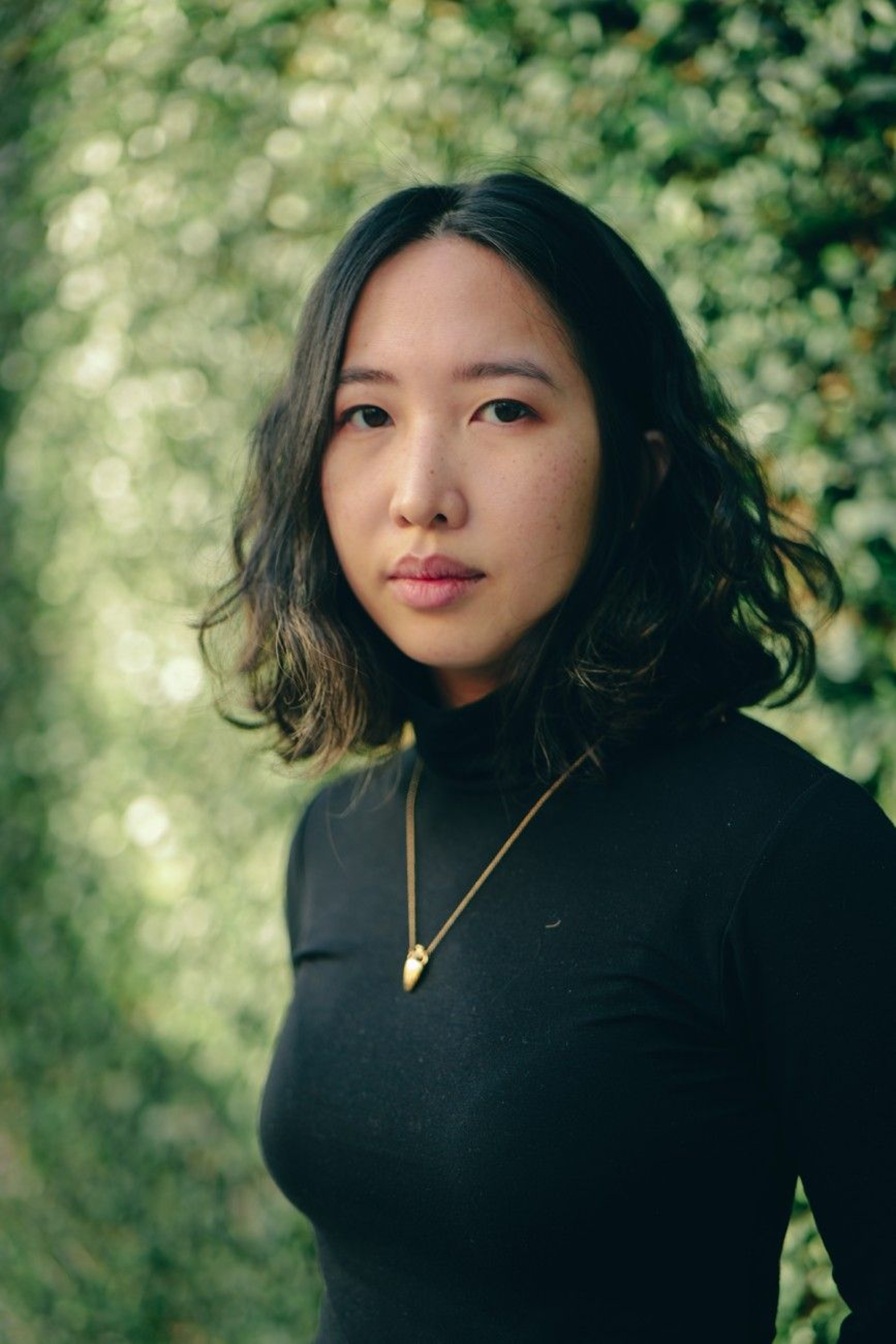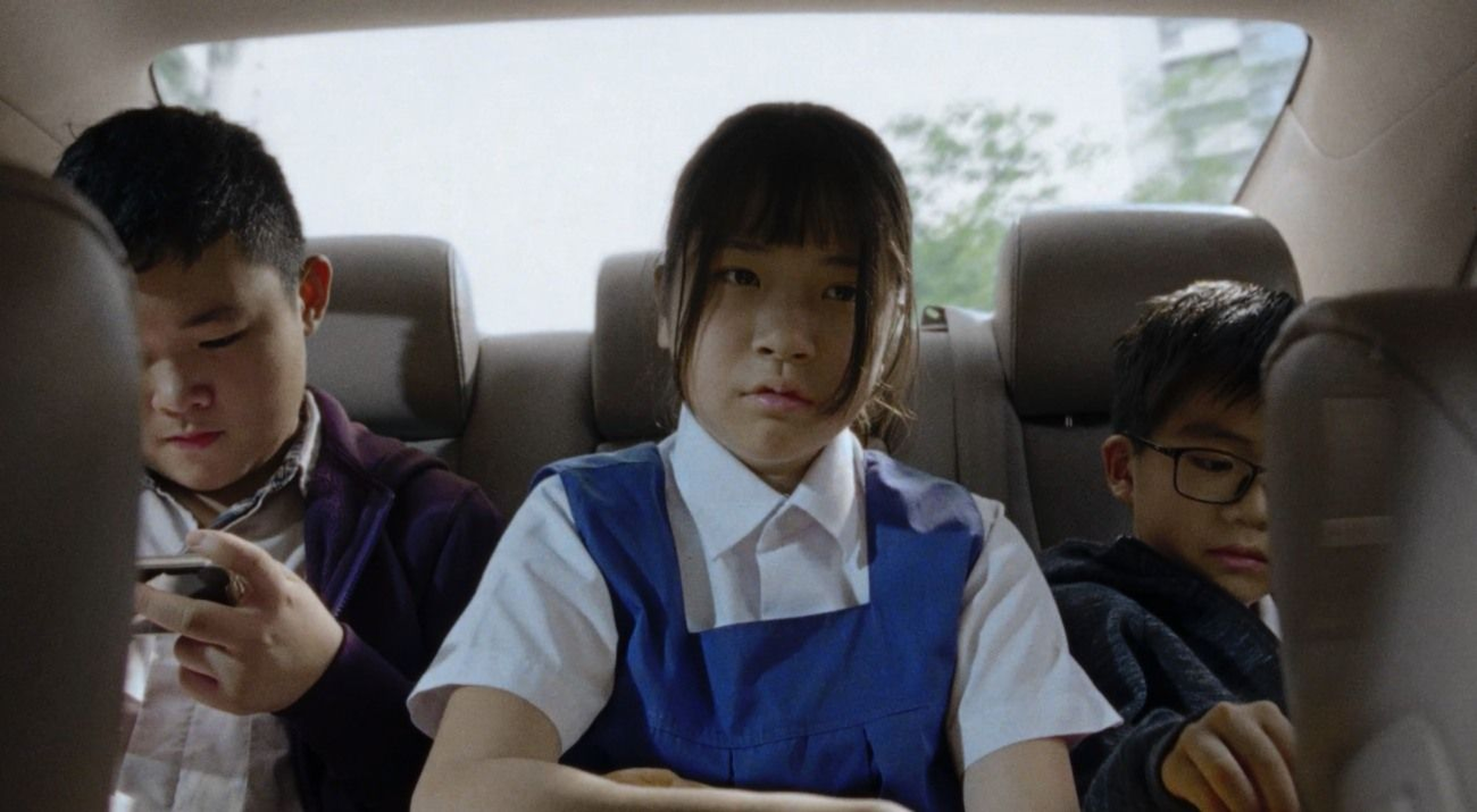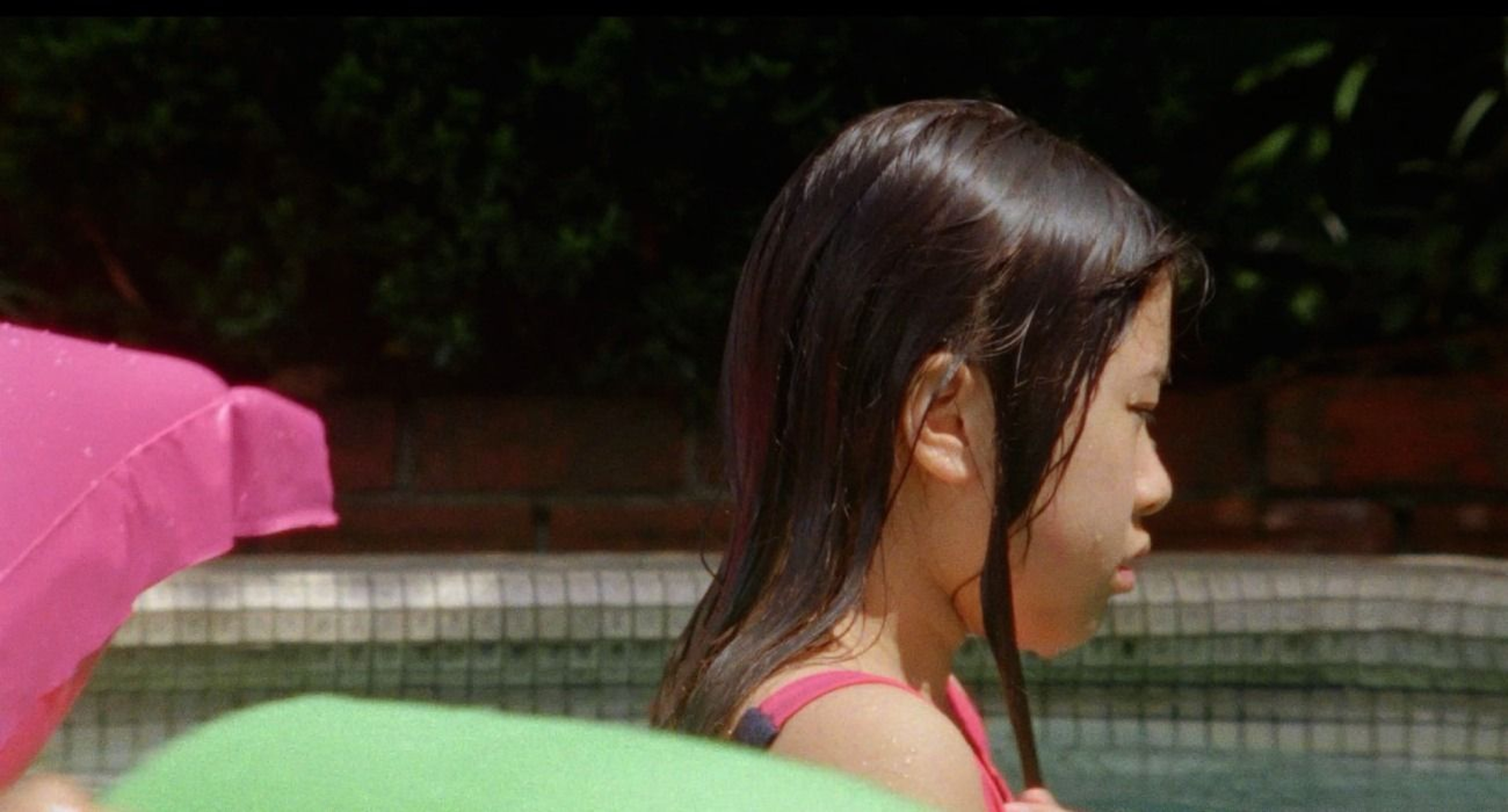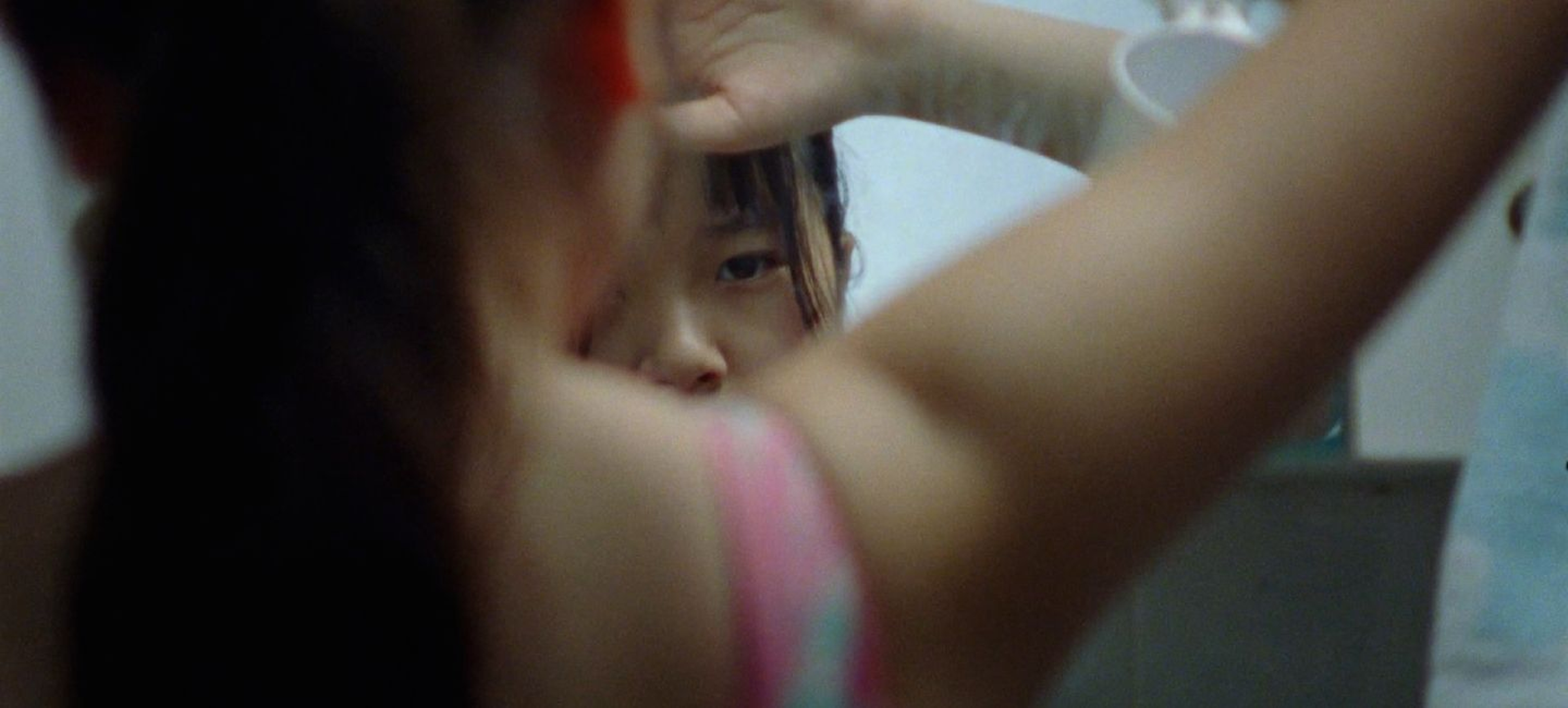Cheryl Wong’s short film Stigma, Style is one of five works chosen by a special jury of filmmakers, curators, and critics for the Focus Features & JetBlue Student Short Film Showcase. Created as her MFA thesis film for the New York University's Tisch School of the Arts, Stigma, Style was selected from projects from 23 different graduate programs.
In the short film, 11-year-old Kerri (Gabby Tay) is invited to spend an afternoon by the pool at her friend Jessica's house where she grows increasingly curious about Jessica's elder sister, Clara.
We asked Wong to tell us a little about the inspiration for her film, the artists who influenced her, and her plans for the future.
Follow her on Instagram: @cherylwong__
Cheryl Wong's Stigma, Style
Where did the idea for Stigma, Style come from?
Stigma, Style was born out of my own pre-teenhood. In writing this piece, I wanted to explore a young girl’s various transitions at that age in terms of her physicality, friendships, and sexuality, however budding it was. The title, though, came from my mother. While she was helping me prepare for the national exam one takes at 12 in Singapore, we were looking at the parts of a flower. I can still hear her repeating, “anther, filament, stigma, style,” in my head.
Did you draw on memories from your own childhood for the plot?
Definitely. Memories are such a funny thing, aren’t they? How they evolve with time. I guess with all things nostalgic, you tend to look at them through rose-tinted glasses. The plot is very much derived from memories of spending sticky afternoons at a friend’s place, swimming, eating mangoes by the pool, dancing along to music videos, admiring friends’ elder sisters.

Stigma, Style director Cheryl Wong
How did you find your cast?
With the help of my casting director, Angel, and my associate producer, Sam, who were with me throughout the casting process. We’d put out casting calls on Facebook pages, reached out to contacts for recommendations, scoured online databases, and sought help from our friends at Hello Group, a casting agency in Singapore. It was then a process of meeting everyone and making sure they were comfortable in front of the camera, with me, and with each other. I was most concerned about the synergy between Kerri and her friends, so when I had a good sense of who’d play those characters, I got us all together to play some games and do a reading. It was magical how they all kind of fell into their roles.
What in the final film most captures what you saw in your mind when you first imagined the film?
This is a tough one. There were so many moments I saw when I first thought of Stigma, Style, but I think it’ll have to be the moment Kerri watches then approaches Clara in the kitchen to bake with her, then just the two of them putting batter on the trays with the occasional instruction.

Kerri (Gabby Tay) with her brother in Sigma, Style
What was the biggest lesson learned working on Stigma, Style?
I find the difficulty with short films, especially ones that are based on memories or experiences, is that there’s usually so much material. It’s never really that clear or linear. The script was a little longer, and we’d shot more scenes, especially with Kerri’s friends, but ultimately Kristian (my producer and editor) and I decided to whittle the film down to Kerri’s relationship with her body and impending womanhood, and her curiosity about her friend’s elder sister, Clara. If I’d been willing to let some things go ahead of time, maybe we’d be able to explore each of those elements a little deeper. But ultimately, I’m happy with what the film came to be and how we got there. It’ll be a lesson for next time.
As an emerging filmmaker, who are your influences (filmmakers, artists, writers, or friends)?
In film, Edward Yang and Andrea Arnold. They both tend toward slice-of-life stories, which is a style that resonates with me as a person. Edward Yang’s frames are exquisite, and how he weaves story and characters is so seamless and natural, you can’t help but keep watching. And with Andrea Arnold, there’s so much emotional intimacy. I love how her female protagonists are so imperfect, but you can’t help but root for them.
My fellow writer/director friends from NYU are also influences. One of the most wonderful things about being a part of an NYU grad film class is that you watch your friends grow and develop as artists, hitting speed bumps on the way, and even though we know each other’s work intimately, what comes out of each us is so different because of who we are and what we’ve each experienced. Having a group of people in the same boat, hopefully swimming more than sinking, is always kind of nice.

Kerri (Gabby Tay) in Sigma, Style
What was the first film you saw that made you want to be a filmmaker and why?
I was just talking about this with a friend the other day. A Little Princess, directed by Alfonso Cuaron. I would rewatch the scene where Sarah and Becky wake up to their room filled with luscious drapery and food, and also the scene where Sarah screams for her father, trying to get him to remember her. Delicious.
I think what initially drew me to film and eventually filmmaking was wanting to be those characters that I saw. A part of me wanted to be Sarah (and I’m not going to lie, I also wanted to be Gretl in The Sound of Music, carried off to bed from the bottom step). I saw young girls around my age on screen, and I wanted to live the lives of the characters they played, which is why I find representation on screen to be such a powerful thing. It’s become a very natural but active decision for me to tell stories with English-speaking Asian characters at the forefront. It’s permission and validation. Looking back, maybe, I wouldn’t have gone through the whole wanting-to-be-white phase if there was an Asian Sarah.
Are you working on a feature film? What is it about?
I am. It’s a drama set in a rapidly changing Singapore about a boisterous 17-year-old and her 70-year-old father. It’s their parallel coming-of-age journeys that intertwine with each other, with their short-lived romances, and intergenerational differences. I’m also thinking about a feature version of Stigma, Style. It seems backward, I know, but I needed the time to sit with the short film.
This interview has been edited and condensed for clarity.
